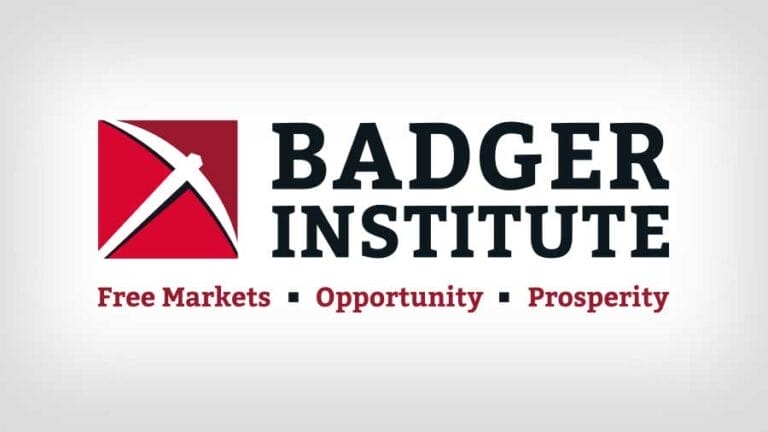As with manufacturing property, valuations should be done by the state, with owners being able to appeal to a panel of tax experts rather than a local review board
Here’s something we all know: Taxes are complicated, at the federal, state and local levels. This complexity extends to real estate assessments, or valuations, for property tax purposes and, in particular, to commercial property assessments.
To ensure fairness to local governments and taxpayers alike, the assessing of commercial property calls for an impartial process that allows for appeals to an administrative body or court specializing in tax disputes of this nature.
Some states have taken steps in this direction. Wisconsin has not, and the Legislature should fix that.
In Wisconsin, local communities select assessors to value commercial property within their jurisdictions. Note that while this is also the case with residential property, the state — not local communities — assesses manufacturing property.
In 1973, the Legislature created a state law (70.995(2) Wis. Stats.) making the Wisconsin Department of Revenue (DOR) responsible for the assessment of manufacturing property. The law was “created to help ensure fair and equitable assessments for manufacturing property and assessment uniformity statewide,” according to the DOR.
If this was and is appropriate for the assessment of manufacturing property, isn’t it also appropriate for commercial property? The answer clearly is yes.
After all, manufacturing property logically can be regarded as a type of commercial property, and, at the very least, the two have much more in common than do commercial and residential properties.
As Todd Berry, former president of the Wisconsin Taxpayers Alliance and tax-policy consultant to the Badger Institute, points out, “commercial assessment is as specialized as manufacturing. It requires comparables and sales data (like manufacturing) not readily available or understood by a local contract assessor.”
Consider also that assessors picked by local officials might be influenced, even if subtly, against commercial property owners if they think that would sit better with residential property owners.
True, any skewing of property valuations would violate the assessors’ duty or charge. Valuing property, however, by its very nature involves estimating, which in all its complexities is subject to a degree of subjectivity.
The likelihood of any such biases creeping in at the state level seems remote where the same competing interests don’t exist. Moreover, having the state in charge allows for more specialized assessors to undertake valuations in a uniform manner.
Presumably, the Wisconsin Legislature thought that to be the case in 1973 with respect to manufacturing property, and it ought to apply equally to commercial property.
That leads us to the appeal process, which is equally flawed and for many of the same reasons. Whereas manufacturing property owners in Wisconsin can appeal their assessments to the Wisconsin Tax Appeals Commission (TAC), a body of tax specialists, that’s not the case for commercial property owners.
They must appeal to a local community’s Board of Review (BOR) — or to a Board of Assessors, if any, and then to the Board of Review. BOR members need only be “municipal officers, or residents, or a combination of the two.” That’s it. No expertise is required.
There’s not even a training requirement, except for at least one voting member (out of as many as nine in total) to attend a DOR-approved training session once in two years before the first BOR meeting.
As a last resort, commercial property owners can appeal to the county circuit court within their jurisdiction. Here, too, however, there is no requirement that the judges assigned to the case possess any tax or property assessment expertise.
In fact, that’s probably not the case — all of which leaves commercial property owners feeling less than confident about whether they’ve been treated fairly.
The answer is for Wisconsin to allow commercial property owners to appeal to the TAC, just like manufacturers do. And then, if still not satisfied, the property owners should be able to have their case heard by a specialized tax court.
That is indeed what other states are doing.
The American Institute of Certified Public Accountants prepared a report in 2016 showing that at least six states have a tax court, and two others have independent tax tribunals that are not even part of the executive branch. Included in this group are our neighbors Indiana and Minnesota.
They both have such courts to hear appeals of property tax valuations. With respect to its tax court, Minnesota requires that “(a)ll of the judges have expertise in the tax laws and apply that expertise in a manner to ensure that taxpayers are assessed only what they owe, and no more.”
To achieve that notion of fairness in Wisconsin, therefore, the Legislature should reform its property tax laws with respect to the assessment of commercial real estate. The assessment should be conducted at the state level, with property owners then being able to appeal, if they so choose, to a tribunal or court of tax experts.
Let’s be clear. This is not some arcane exercise. Wisconsin has some of the highest real property taxes in the country, and Milwaukee County’s taxes are among the highest in the state.
For owners of commercial property here, these taxes often represent a substantial cost of doing business. They even may constitute the highest single cost a property owner incurs, according to Nicholas Boerke, a real estate attorney with the Milwaukee law firm von Briesen & Roper.
Likewise, the Tax Foundation has reported that Wisconsin relies on property taxes as a source of overall revenue for the state and local governments at a higher percentage rate than all but 15 other states. Further, that rate — 34.7 percent — is almost 10 points above the rates in Minnesota and Indiana.
If those states afford commercial property owners a fair process, Wisconsin —where the tax stakes are even higher — should as well.
Jay Miller of Whitefish Bay is a visiting fellow at the Badger Institute. He is also a tax attorney and an adjunct professor at the University of Wisconsin-Milwaukee’s Lubar School of Business.






